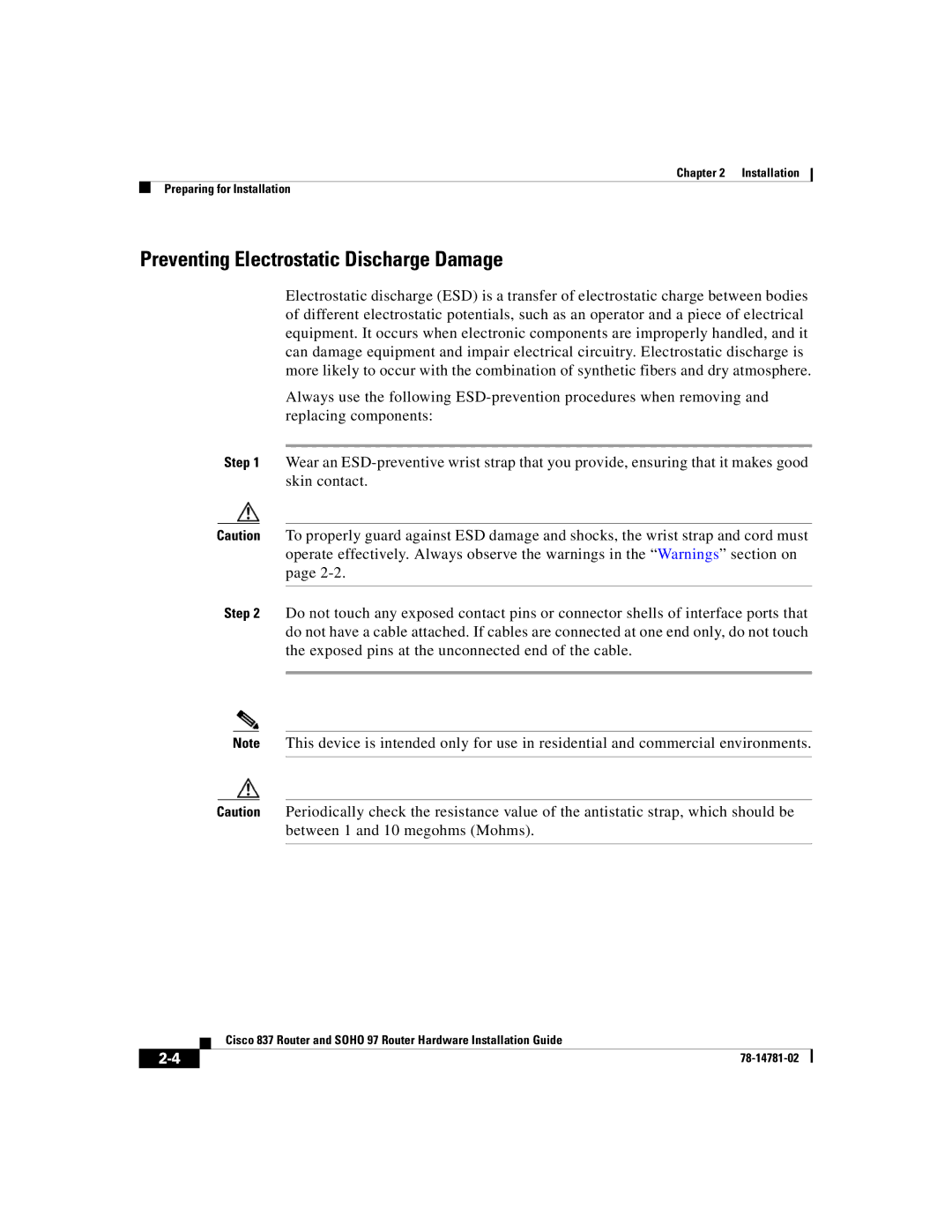
Chapter 2 Installation
Preparing for Installation
Preventing Electrostatic Discharge Damage
Electrostatic discharge (ESD) is a transfer of electrostatic charge between bodies of different electrostatic potentials, such as an operator and a piece of electrical equipment. It occurs when electronic components are improperly handled, and it can damage equipment and impair electrical circuitry. Electrostatic discharge is more likely to occur with the combination of synthetic fibers and dry atmosphere.
Always use the following
Step 1 Wear an
Caution To properly guard against ESD damage and shocks, the wrist strap and cord must operate effectively. Always observe the warnings in the “Warnings” section on page
Step 2 Do not touch any exposed contact pins or connector shells of interface ports that do not have a cable attached. If cables are connected at one end only, do not touch the exposed pins at the unconnected end of the cable.
Note This device is intended only for use in residential and commercial environments.
Caution Periodically check the resistance value of the antistatic strap, which should be between 1 and 10 megohms (Mohms).
| Cisco 837 Router and SOHO 97 Router Hardware Installation Guide |
